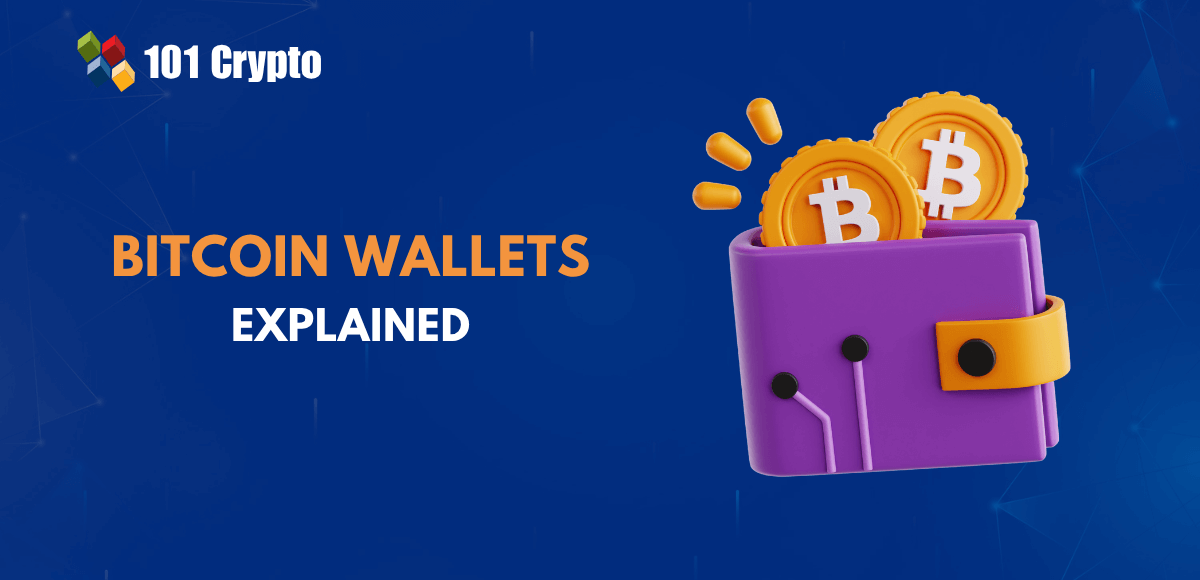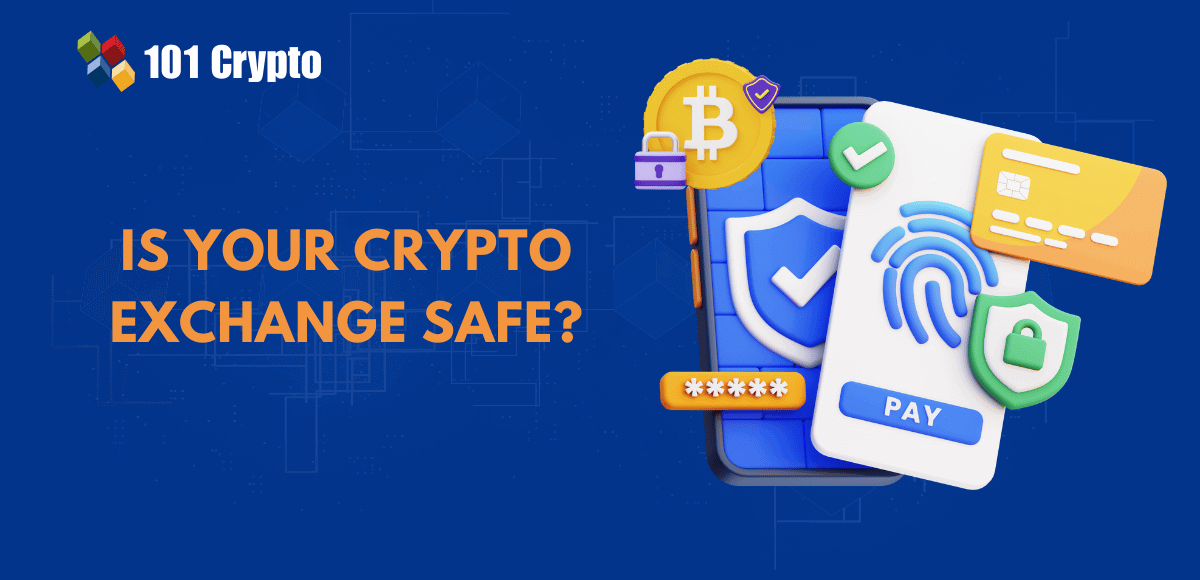The crypto wave got you and you are here looking for the best wallets to store your Bitcoin. Did you think that you can store Bitcoin like physical cash or coins in your wallet? This is where you need the Bitcoin hot vs. cold wallet comparison to find out the ideal option according to your requirements.
The buzz around Bitcoin and other cryptocurrencies is not fading away anytime soon and you should prepare to capitalize on the crypto revolution. Anyone diving into the crypto space must know which Bitcoin wallet will serve the best results in storing their digital gold. Let us learn more about the two popular variants of Bitcoin wallets and their implications for crypto owners.
Enroll now in the Bitcoin Fundamentals Free Course to gain deep insights on how the Bitcoin blockchain works.
Understanding the Utility of Bitcoin Wallets
The transformative impact of Bitcoin on the modern financial landscape has everyone thinking about buying Bitcoin and other cryptocurrencies. As a matter of fact, almost 30% of people in the United States own some type of crypto asset. With more people showing interest in Bitcoin and the crypto space, Bitcoin wallets or crypto wallets have emerged as valuable tools. One of the first things that you must know about Bitcoin wallets is that they are not similar to physical wallets used to hold cash and coins.
You can define a Bitcoin hot and cold wallet as a secure key ring that holds all the private keys. The private keys help in accessing and spending your Bitcoin, thereby implying that your Bitcoin is never in your wallet. Your Bitcoin always stays on the public ledger while the wallet offers a way to access the Bitcoin with private keys. Awareness of the basic description of how a Bitcoin wallet works can provide the ideal foundation to differentiate hot wallets from cold wallets.
Hot Wallets and Seamless Connection to the Crypto Space
You must have a small amount of cash in your wallet at any time for daily expenses, such as buying a snack or a cup of coffee. It is the best way to explain how a hot wallet works for Bitcoin and other cryptocurrencies. Hot wallets derive their characteristic name from the fact that they are always connected to the internet, thereby making them constantly online and easily accessible. Users trust hot wallets for their everyday crypto transactions, generally in smaller amounts. With a hot wallet, you can always stay connected to the crypto space.
The working of hot wallets serves as a huge reference for cold vs. hot Bitcoin wallet comparison. Hot wallets generate and store private keys on a platform or device that is equipped with active internet connection. You can use a hot wallet to send Bitcoin to your friend or pay for something online in few seconds.
Unraveling the Variants of Hot Wallets
The review of the traits of different types of hot wallets can provide a clear impression of the range of their utility. You will come across three common types of hot wallets, such as desktop wallets, mobile wallets and web wallets or exchange wallets. Desktop wallets are software programs that you can download and install directly on your computer. The interesting thing about desktop wallets is that they provide considerably better control over private keys due to local storage. Mobile wallets are smartphone apps which help you store and manage your cryptocurrencies with user-friendly interfaces.
Web wallets are the most commonly used variant of hot wallets. Interestingly, web wallets are the best starting point for any beginner in the domain of crypto. You can find web wallets in crypto exchanges such as Binance, Kraken or Coinbase. Upon signing up for a crypto exchange, they will offer a web wallet. Web wallets serve as custodial solutions because the exchange has complete control over your private keys.
Advantages and Limitations of Hot Wallets
The next important aspect in a comparison between Bitcoin hot wallets and cold storage is the outline of their advantages and limitations. You can find answers to “Which is better, a hot wallet or a cold wallet?” for your crypto adventures by identifying where they stand out and the areas where they have setbacks. The foremost advantages of hot wallets include convenience, speed and accessibility. You can set up hot wallets quickly within few seconds and complete transactions within seconds. Hot wallets are also easily accessible from any device with an internet connection.
The prominent setbacks of hot wallets include custodial risks and security risks. Exchange wallet users are likely to be vulnerable to risk since they place the custody of their private keys in a third party. If the exchange goes bankrupt or becomes the victim of a security breach, you can lose your Bitcoin forever. On top of it, hot wallets are always connected to the internet, thereby making them more vulnerable to malware, hacking attempts and many online threats. In addition, the transactions of users on hot wallets are more likely to be traceable due to KYC/AML requirements.
Who Should Use Hot Wallets?
The traits of hot wallets show that they are ideal options for holding small amounts of Bitcoin that you can use for everyday transactions. Hot wallets are the best picks for users who have started crypto trading and participate in frequent trading activity. The simple working of hot wallets makes them easier to understand for beginners.
Cold Wallets as the Digital Vaults for Bitcoin
If Bitcoin is digital gold, then you can find many people who have hoarded a lot of it. While hot wallets are useful for storing small amounts of Bitcoin for everyday transactions, they are vulnerable to security risks. Therefore, you cannot store large Bitcoin deposits in hot wallets, owing to the fear of losing them in a security breach. Cold wallets provide an ideal solution to safeguard your Bitcoin by storing it in offline devices. Cold wallets are physical devices which stay offline for most of the time, thereby making them more secure against online threats.
You must view the Bitcoin cold vs. hot wallet comparison from the perspective of their working mechanism. Unlike hot wallets, cold wallets store private keys in a completely offline environment. You can use cold wallets for transactions by bringing them online temporarily or using secure methods to sign the transaction offline before sending it to the blockchain. The minimal exposure of cold wallets to the internet reduces the attack surface for malicious agents.
Variants of Bitcoin Cold Wallets
The most interesting thing about cold wallets is that you can find a primary approach to store your private keys with them. For instance, one of the easiest approaches for cold storage of Bitcoin is a paper wallet. With a paper wallet, you can just print or write down your Bitcoin public address and the private keys on a piece of paper. You can notice that paper wallets may not be the ideal option for cold storage as they are vulnerable to physical damage or fading ink.
The best way to adopt cold Bitcoin wallets involves using hardware wallets, which are physical devices created for offline storage of your private keys. Hardware wallets look like USB drives and you can connect them to a phone or computer when you want to conduct a transaction. The transaction signing happens within the hardware wallet, thereby protecting your private keys from exposure. Users can verify the transaction on the screen of the hardware wallet and then send the signed transaction to blockchain.
Advantages and Limitations of Cold Wallets
The Bitcoin hot vs. cold wallet comparison also calls for emphasis on the pros and cons of cold Bitcoin wallets. One of the significant points among the advantages of cold wallets is the assurance of better security than hot wallets. Since you will have complete custody of your private keys in cold storage, there is no risk from exchange hacks. At the same time, holding your private keys in your control aligns with the core principle of decentralization.
The advantages of Bitcoin cold wallets cannot overshadow their limitations. Cold wallets are not ideal for small or frequent transactions as the setup process takes a lot of time. Beginners can experience difficulties in understanding how to work with hardware wallets. Most important of all, hardware wallets are also vulnerable to physical damage, theft or loss. Without a backup of your recovery phrase, you may end up losing your Bitcoin if you lose your hardware wallet.
Who Should Use Cold Wallets?
Cold wallets are ideally recommended for users who are serious about safeguarding their digital assets. You should use cold wallets if you want to store large amounts of Bitcoin or other cryptocurrencies. You can also think of them as safe vaults or deposit box for your digital gold.
Final Thoughts
The review of the fundamentals of Bitcoin hot and cold wallet reveals that each type of wallet has special strengths. You can rely on hot wallets for everyday trading transactions and daily crypto payments. On the other hand, cold wallets are useful for long-term storage of large deposits of Bitcoin. At the same time, you must also keep an eye on the limitations of both types of wallets. For instance, hot wallets are vulnerable to online security threats while cold wallets are at the risk of physical damage. Learn more about the two types of crypto wallets and identify the best options for your crypto journey right now.
Disclaimer
The article should not be taken as, and is not intended to provide any investment advice. Claims made in this article do not constitute investment advice and should not be taken as such. 101 Crypto shall not be responsible for any loss sustained by any person who relies on this article. Do your own research!







